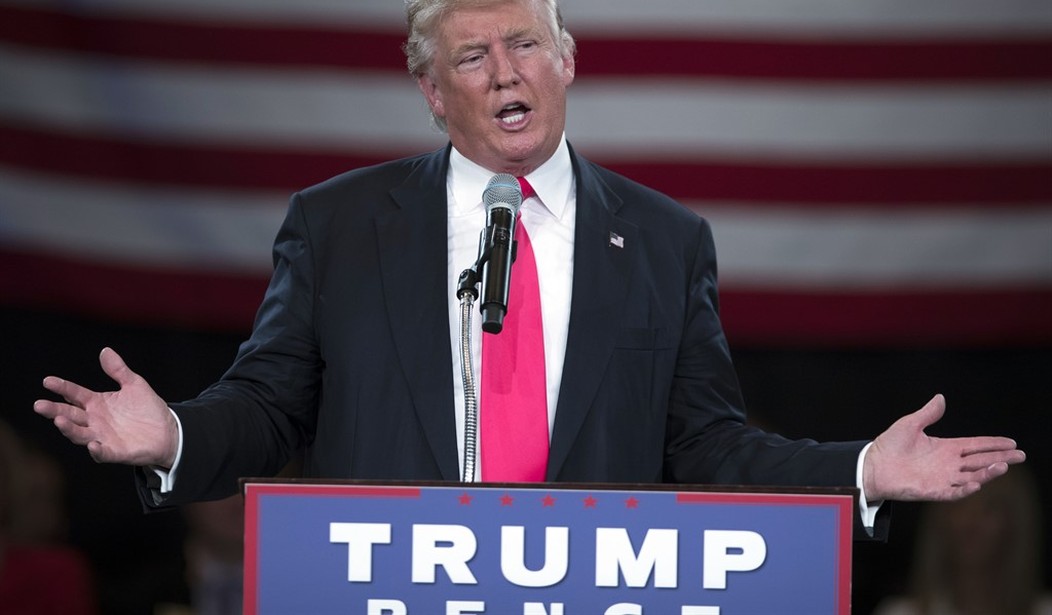And meanwhile, 'scuse the auto grease on my overalls.
Among the signal (forgive that 10-buck adjective) marks of the 2016 campaign is the intellectual snobbery of the liberals who convene as Democrats in Philadelphia this week to save the country from ignorance and bigotry by nominating Hillary Clinton.
A constant meme -- that's a 50-buck word there -- of campaign coverage is the education gap. Essentially, it means (according to the Pew Research Center) that people with postgraduate degrees "are far more likely than those with less education to take predominantly liberal positions across a range of political values." From which data it would appear to follow that liberal positions are the "smart" positions, whereas non-liberal ones (skepticism about immigration or, more broadly, affection for traditional norms and values) are what you'd expect from people who suppose Yale is a door lock.
Snobbery is endemic -- these big buck words stay with you when you read the modern media - in the human makeup; meaning we all do it. However, its implications in 2016 seem unusually dangerous.
Political observers are dividing the political landscape between smart liberals and dumb conservatives: Trump types with their red "Make America Great Again" caps and distaste for learned discourses on the reasons old-fashioned values like patriotism and law and order no longer deserve a serious hearing, having been displaced by diversity, for instance, and the need for "safe spaces."
Recommended
The non-equivalence, in liberal terms, of academic "safe spaces" and Western ideals like free speech shows what we're coming to -- and how radical, and dangerous, the political divide is this year. On the one hand, sensitive collegians clamor for protection on campus from offensive ideas. On the other hand, universities, the very institutions that shape the views of our self-vaunting thought leaders, are supposed to traffic in ideas of all sorts.
You wonder why, if the "smart" people who favor liberal ideas are really so "smart," they don't put a stop to the whining and cringing of the anti-free-speech faction that increasingly dominates academia.
The "smart people vs. dumb people" divide, as I suppose we are supposed to consider it, does vast harm to the whole notion of democratic politics. When the "smart" decide their own policies are the only ones worth adopting, contrary policies, however seasoned, however well-reasoned, fall into contempt. That's the kind of contempt already brewing as the smart liberals gather in Philadelphia to show the dumb and unenlightened how America really should be run, by federal edict, if you get down to it.
"Facts," writes Roger Cohen in The New York Times, looking back on the Republican National Convention, "are now a quaint hangover from a time of rational discourse." The rational -- who work for the Times and like institutions -- decide what's rational and what isn't. The challenge isn't so much to disentangle Trump's particularly fantastical claims as it is to discredit the entirety of what the non-smart, non-educated, non-rational party, Trump's party, might believe. Not always without cause, be it noted.
A whole college seminar would fail to root out the causes of intellectual snobbery in politics. The soil of the Garden of Eden would be an attractive place to begin. Nonetheless, the effects, as distinguished from the causes, are destructive enough to warrant investigation.
Say the "smart" party and its "smart" candidate win in November (as could certainly be the case): What happens then to all the "dumb" people who voted for the "dumb" party and its ideas? Are they ignored, or ridden out of town on a rail? The challenges of democratic government admit of no such "solutions." In democratic government, the "smart" solution is supposed to be what the people -- never mind the Harvard faculty -- want. I hate to be "dumb," but there it is, folks.
























Join the conversation as a VIP Member